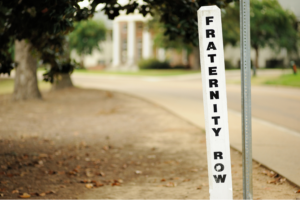So you want to attend medical school…
A BS/MD (Bachelor of Science/Doctor of Medicine) program is ideal for students who are certain they want to be doctors before they’ve even graduated from high school. The program allows students to proceed directly from an undergraduate degree into medical school, without needing to endure the arduous med school application process or even take the MCAT.
BS/MD programs are wonderful opportunities for especially driven and focused college applicants. There is, however, one rather large catch: they are notoriously difficult to get into. The highest level BS/MD programs are more competitive than any standard undergraduate program, enrolling just 1-3% of applicants every year.
But, reader, do not despair! Armed with knowledge and strategy, you can work towards building a strong program application. In this article, we’ll explore how to get into med school, the ins and outs of the typical BS/MD, and how you can prepare and apply for highly coveted program spots.
BS/MD vs. Pre-Med
Pre-med programs and BS/MD programs both serve to prepare students for medical school, but they achieve this end through different paths. Pre-med is not actually a major, but rather a standard set of courses that provides the proper academic grounding and theoretical basis to enter medical school. Students have to choose another major (which does not necessarily need to be in the sciences) to accompany their pre-med coursework. Students can then apply to medical school in their junior or senior year of undergrad, or during the years following their graduation–these credits will generally fulfill med school requirements for up to 5 years after graduation, allowing you to enter the application cycle when you choose. By studying on the pre-med track, students have some flexibility in their timeline and can pursue different opportunities before beginning formal medical training.
BS/MD programs, on the other hand, are far more streamlined. Like pre-med programs, BS/MDs prepare students for the academic rigors of medical school, but do so in only 3 years. As a result, they allot far less time for electives or other majors, if they allow them at all–the primary focus is the pre-medical and medical coursework. However, these programs last only 6-8 years overall, which is shorter (and usually more affordable) than the standard track. They also allow students to avoid taking the MCAT or applying to medical schools, thus saving them some stress and hours of studying.
BS/MD programs are very difficult to get into because of these benefits; many of them are also easy to fail out of. Students can be kicked out of the program altogether for falling below the set GPA threshold, or for violating ethical standards (which can vary by institution). Students removed from their BS/MD programs may be allowed to continue their undergrad degree at the same school, but will no longer have guaranteed admittance to the affiliated medical school.
Preparing for BS/MD programs
Clearly, these are challenging and rigorous programs–so how can you best prepare for them?
The process of preparation should ideally begin early in your high school career, but don’t worry–all is not lost if you’re only starting to think about this as a junior. The most important factors are GPA and test scores: you should have very high grades in challenging courses, and high standardized test scores.
While perfect grades and scores won’t guarantee you acceptance, lower ones can unfortunately hurt or sink your chances. For the very top programs, you should aim for the 99th percentile. For less competitive programs there is slightly more leeway (albeit not much). Your grades in math and science are especially important, given their relevance to the medical profession. You should be taking (and excelling in) AP Biology, Chemistry, and Calculus. In so doing, you’re demonstrating that you’re ready for the rigors of an intensive BS/MD program.
The next thing you will need is a compelling narrative: Why do you want to be a doctor, when you could pursue any other profession? These narratives can be challenging to build and frame, but will ultimately help admissions officers to understand your motivations for pursuing this path. At Ivy Scholars, we have extensive practice helping students find and build the narratives that speak most effectively on their behalf, and we encourage you to reach out if you’re in need of guidance during this process.
Extracurriculars are the third key component of a BS/MD application. Good grades will be expected from all competitive applicants, but extracurriculars will help your profile stand out from the rest.
For these programs, the following extracurricular activities are most relevant and will be viewed most favorably:
- Research. Helping out as an assistant or working in a university lab demonstrates your commitment level and scientific preparation, as well as familiarity with the academic world.
- Clinical experience. This includes any work done in hospitals or working with patients, either as a volunteer, intern, or in a paid role. These roles have experiential value and can indicate a hands-on understanding of the medical profession.
- Shadowing. This involves following a doctor and observing what they do and how they do it, and often comes as part of an internship. These opportunities oftentimes need to be specifically sought out, and may require connections through school or personal networks. Like clinical experience, shadowing shows a real-world understanding of the medical profession and genuine interest in the field.
- Volunteering. The volunteer work you choose should build upon themes found elsewhere in your application, but can be more tangentially related. Women in Science initiatives, helping with services to the underprivileged, or other areas relevant to your interests and identities can be great ways to strengthen your application while building experience in spaces you value.
Extracurriculars are especially useful in helping you craft the narratives you’ll put forward in your application. Rather than telling admissions officers how passionate you are about medicine, you can show them through your dedication and commitment to relevant activities. BS/MD programs are long and intense. It’s important to demonstrate your commitment to medicine, research, and providing support to your community to show your application readers that your interest in medicine goes beyond the superficial.
The final component of the admissions process is the interview. In standard undergraduate applications, the interviews sometimes matter, but typically provide nothing more than a small boost to an application. For BS/MD programs, however, interviews are essential and are usually conducted by a member of the board who oversees the program.
A good interview should demonstrate your maturity, passion for medicine, and intelligence. Avoid coming across as conceited, robotic, or blasé. You should aim to be the best possible version of yourself in the interview–highlight your accomplishments and be straightforward and honest about the areas in which you hope to grow over the coming years. It is good to practice a few times before conducting your actual interview, as a poor showing can sink an otherwise stellar application.
Applying to a BS/MD program
The first step towards applying for BS/MDs is creating your college list. Take an unbiased look at your grades, test scores, and extracurriculars, and determine where you should aim. It is fine to dream big, but don’t waste your effort on hopeless causes. There are many BS/MD programs around the country you may not have heard of, so do your research on all possible options before settling on where you will apply. Don’t worry about the weightiest names–all BS/MD programs are extremely competitive, and almost any school that offers them will be able to provide excellent experience and training.
It’s also important to consider whether you truly want to commit to a BS/MD, or whether the traditional pre-med route would better suit your goals. Many students are strong applicants to elite schools but lack the extra edge needed to win admission to BS/MD programs. If you don’t end up getting into any BS/MDs, there’s no need to be down on yourself–remember, you’re part of the 95-99% of applicants who didn’t secure a spot. You can always set yourself up for admittance to elite medical schools by excelling in your pre-med coursework at a strong undergraduate institution.
Final Thoughts on Medical School Applications
Programs as elite and specialized as the BS/MD can afford to be selective, and it is perhaps smart that they are. Medical school is very difficult, and careers in medicine are as challenging as they are rewarding. Before beginning this journey and committing to becoming a doctor before you’ve even graduated high school, make sure you are confident in your course and can see yourself happy on this career path in the long-term.
Applying to BS/MD programs can be demanding and anxiety-inducing, but you don’t have to do it alone. At Ivy Scholars, we have experience with not only the application process, but with setting students up with strong extracurricular involvements, helping them prepare for and ace challenging tests, and preparing them for the future they envision for themselves. Reach out to us so that we can pave the way for your journey.








